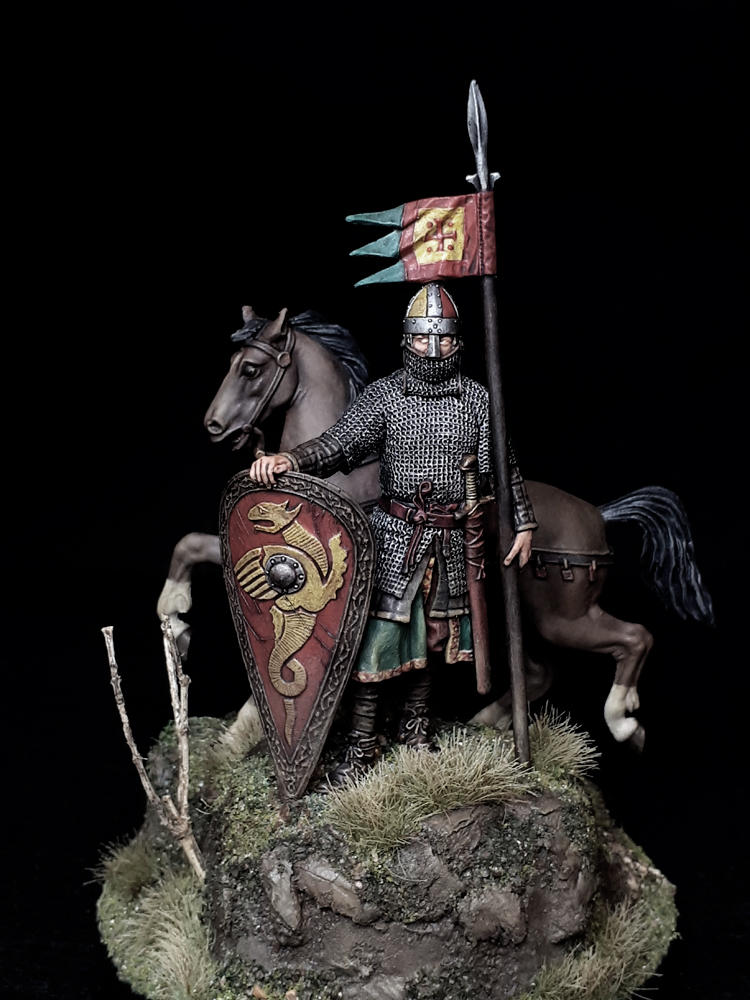
The Normans were descendants of Norse Vikings (after whom Normandy was named), indigenous Franks and Gallo-Romans. They inhabited the early medieval Duchy of Normandy.
Viking raids on towns along the French coast led to settlements of people from Denmark, Norway and Sweden – and gained political legitimacy when the Viking leader Rollo agreed to swear fealty to King Charles III of West Francia following the siege of Chartres in 911 AD.
The intermingling of Norse settlers and native Franks and Gallo-Romans in Normandy produced an ethnic and cultural ‘Norman’ identity in the first half of the 10th century, an identity which continued to evolve over the centuries.
The Duchy of Normandy, was a large province of medieval France, and under Richard I of Normandy was forged into a cohesive and formidable principality. By the end of his reign in 996 AD the descendants of the Norse settlers of the province were, according to Cambridge Medieval History (Volume 5, Chapter XV), “not only Christians but in all essentials Frenchmen”.
The Normans had a major political, cultural and military impact on medieval Europe and the Middle East. Famed for their martial skills, horsemanship and eventually for their Catholic faith, becoming avid supporters of the Catholic Orthodox Church.
The Normans played a role in founding the Kingdom of Sicily after briefly conquering southern Italy and Malta from the Saracens and Byzantines, and an expedition on behalf of their duke, William the Conqueror, led to the Norman conquest of England at the historic Battle of Hastings in 1066. Norman and Anglo-Norman forces contributed to the Spanish Iberian Reconquista from the early eleventh to the mid-thirteenth centuries.
Norman culture and military accomplishments spread from their European centres to the Crusader states of the Near East, where their prince Bohemond I founded the Principality of Antioch in the Levant, to Scotland and Wales in Great Britain, to Ireland, and to the coasts of North Africa and the Canary Islands.
The legacy of the Normans still exists today through the regional languages and dialects of France, England, Spain, Quebec and Sicily, and also through the various cultural, judicial, and political arrangements they introduced in their conquered territories.
